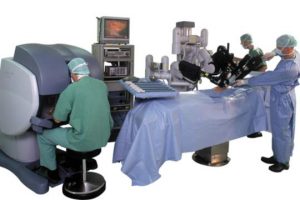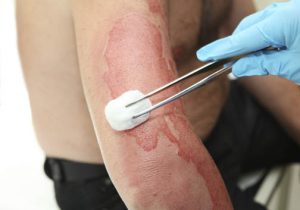The good news: Even though you’re into middle age, you’re still very active physically.
The bad news: All that activity places a lot of wear and tear on your joints, especially your knees. Oh, your aching knees! That deep, grinding pain will not go away. In fact, it seems to be getting worse. And now your doctor is recommending knee replacement surgery.
And now more good news: Knee replacement surgery has come a long way over the last couple decades.
Yes, it’s still considered major surgery and it will take some time before you’re back to your old self. However, with hard work, persistence and patience, you can get back to taking those weekend runs or playing pick-up hoops at the gym. And now you’ll be pain-free!
Here’s what you should know about recovering fully from knee replacement surgery.
As soon as you wake up from surgery, rehab begins. The physical therapists and occupational therapist will have you out of bed, standing and even walking, using a walker or crutches, the day of surgery. They will then see you every day during your inpatient hospital stay.
The usual hospital stay is two to three days. You should expect to have pain at the onset; this is normal. The doctor will prescribe pain medicine to help you manage your way through this period. Early mobilization has been shown to produce the best results. By the time you’re ready to be discharged, you will have taken longer walks and even gone up and down stairs. You should be able to bend your knee to about 90 degrees.
When you go home, a physical therapist will visit you there to work with you within 24 to 48 hours after discharge. With the home therapist, you’ll work on a series of exercises to strengthen the knee, and perfect your walking pattern and stamina. If for some reason, you are unable to go directly home there are options. Hospital staff will discuss these with you during your inpatient stay if needed. This early rehab phase usually lasts about a week.
When you’re home, be smart about your activities. Don’t overdo it. Stair climbing should be kept to a minimum, especially in the early days. You should sit in a chair with armrests; this will be easier to get in and out of than something without armrests. Also, take precautions with your environment – temporarily remove throw rugs that can be easy to trip or slip on, and keep pets away while you are walking. In their excitement, your furry friends can jump and knock you off balance, or simply get underfoot and trip you up.
After about two weeks, your knee should feel substantially stronger, and you should be able to walk further distances with considerably less pain. Your doctor will prescribe outpatient physical therapy at your follow-up visit. This is a crucial part of the rehabilitative process and will aid in regaining a bulk of your knee’s strength and range of motion for optimal results.
Your knee is still fragile – it’s important that you don’t pivot on it or twist it for the first six weeks after surgery. At six weeks, you might be ready to drive again – but always ask your doctor first before you jump behind the wheel.
In the weeks that follow, you’ll begin to do more advanced and aggressive exercises, such as riding a stationary bike. By the end of three months, if you’ve been diligent about physical therapy, you should be back to everyday activities.
Recovery from knee replacement surgery isn’t necessarily easy and it takes some hard work, but the results – becoming pain-free and active – are worth it. However, with patience, it doesn’t take too long before you’ll be back and better than ever.
About Crozer Keystone Staff
Crozer-Keystone Health System’s physicians, specialists and advanced practitioners are committed to improving the health of our community through patient-centered, quality care across a full continuum of health services. Crozer Brinton Lake is Crozer-Keystone’s comprehensive outpatient care facility in western Delaware County, offering primary care, specialty services, outpatient surgery and advanced cancer treatment. Contact us: 300 Evergreen Drive, Glen Mills, PA 19342 http://www.crozerkeystone.org/Brinton-Lake 1-855-254-7425
- Web |
- More Posts(131)




Comments